In continuation of the environmental session of the WAC Discussion club, club members and experts discussed plant protection and pest control in the Republic.
Plant protection experts became guests of the WAC Discussion club on Thursday, March 12. Together with the club participants, plant protection was discussed by the head of the UN FAO office in Abkhazia (Food and Agriculture Organization of the United Nations - ed.) Mikhail Klyukin and the head of the laboratory of entomology and invasive species of the Institute of Ecology of the Academy of Sciences of Abkhazia Mikhail Kiriya.
How to fight pests
Mikhail Klyukin said that there are several ways to fight plant pests: chemical, biological, mechanical and agricultural.
“The chemical method, that is, with the use of pesticides, although it works very quickly, harms the ecosystem, this method is outdated,” the expert explained and added that the use of biological products - that is, the biological method of control - no longer poses a danger to people, flora and fauna.
As a successful example of mechanical pest control, Mikhail Klyukin called the manual collection of a marmorated bug, an insect that has spread very much in the Republic over the past few years.
As for the agrotechnical procedures for plant protection, they represent a whole complex and are aimed, first of all, at prevention from pest damage.
Field schools for farmers
The expert recalled that in all regions of Abkhazia today, special UN FAO “field schools” operate for the peasants, where they are taught how to eradicate insects and fungi that harm plants. Anyone can become a student of such a school, you can sign up at the local agricultural administration.
“Our goal is to teach the farmer, - Mikhail Klyukin specified. - Participants in the field school name crops on their site, and master trainers teach them how to protect the plant. For the joint work to be effective, only two conditions are necessary: the diligence and responsibility of the peasant.”
The head of the UN FAO office for Abkhazia also said that the organization plans to take interested participants of field schools from Abkhazia to Moldova in the future to show the success of such schools there.
Threats to ornamental and other plants
The head of the laboratory of entomology and invasive species of the Institute of Ecology, Mikhail Kiriya, in turn, noted that plant protection is a “priority of environmental safety”, and listed plants that fall under protection.
“Crops, forest and ornamental plantings need protection. For the population, crop productivity is important. To preserve the biodiversity of the ecosystem, it is necessary to protect the forest. We position ourselves as a tourist country. Protection of palm trees, cypresses, eucalyptus trees and other ornamental plants will help preserve the attractive appearance of nature,” said the specialist.
He noted with regret that 98 percent of boxwood in the Republic was destroyed by the moth. Kiriya emphasized the importance of quarantine for plants imported into Abkhazia, as well as the availability of own nurseries.
Experts said that in recent years the species of pests has increased in the Republic: box-tree moths, marmorated bugs, and palm weevils.
“Modern logistics makes it easy to move freight flows, and with them the pest, bypassing natural barriers - rivers, mountains, lakes - gets from one corner of the world to the other. Without proper control, we can completely lose ornamental crops and part of the forest plantations,” said the specialist at the Institute of Ecology, adding that a chestnut pest has recently appeared in Abkhazia.
In addition to the topic of insect pests, panelists discussed the problem of forest fires in the Republic. Experts explained that the cause of fires is always human.
“In the spring, peasants prepare for field work and use fire to clean the area, but lose control [of the situation], and the fire spreads. Another reason is the careless handling of fire in the forest. “Hectares of trees can burn out due to a not put out cigarette or a bonfire,” complained Mikhail Kiriya.
“Foundation for environmental education”
Anzor Biroipa, a participant in the Discussion club, a student at the Sukhum Open Institute, shared after the meeting that he “did not even suspect” about the scale of the situation with plant pests.
“Many people know that there is a problem with pests in Abkhazia. But what consequences this can cause to nature, and that the problem does not come alone, but in combination, what measures are required to solve it, what is fraught with inaction - I learned all this at today's discussion,” the young man said.
In his opinion, at least such an awareness of ordinary residents will help to improve the situation.
“A causal link in the perception of [environmental] problems is not traced by an average man if he is not a specialist. I myself am an example of this, although I was not deaf, I did not hide from this information. It’s just not enough. Some work is required: social videos on television and the Internet, hashtags on social networks will help to disseminate information. You can influence the minds,” says Biroipa.
The head of the UN FAO office in Abkhazia, Mikhail Klyukin, following the results of the meeting, noted the presence of youth and interested questions of the participants.
“We are very pleased that many young people are coming. This is the most plastic layer of society. If we lay the foundation for environmental education in it, we can see the results,” the club guest is sure.
His colleague Mikhail Kiriya agrees with the need for environmental education, noting that “due to poor work on environmental education, many people unknowingly can harm the environment.”
“We often see how, after hiking in the mountains [people] post photos on social networks with torn “red book” flowers in their hands. People simply do not know that they pluck rare species of plants. Therefore, it seems to me that such events (such as discussions at the WAC club - ed.) should be carried out more often, on any aspects in the field of ecology,” Kiriya said.
The head of the WAC Discussion club, Irina Turava, called the past lesson an “equator”: four meetings have already taken place within the framework of the environmental session. She believes that the discussion has become “significant” for the club members.
“The missing link has appeared in the project. As one of the participants said, we did not fully realize how serious the problem of plant destruction in Abkhazia was, and I would add on our own: we did not realize how destructive at first glance the action would be for a whole ecosystem: a plucked flower,” Turava said.
The meeting, like last time, was attended by schoolchildren - students of 8 and 11 grades from Gagra. Irina Turava emphasized that “a conscious and correct attitude to nature” of children is “a guarantee of ecological well-being in the future”.
The environmental session of the WAC Discussion club is the first of the topics announced for discussion in the Club. Just like the following ones, it includes a number of interactive meetings, scheduled for several months of work.
As the main directions of the work of the WAC Discussion club, in addition to the environmental one, the topics of preserving and developing the Abkhaz language, promoting the popularization of literature in the native language, preserving the historical and cultural heritage of the Abkhaz-Abaza ethnic group, developing and popularizing domestic science, and preserving the traditional moral and ethical code of Apsuara were previously selected. Club discussions as part of thematic sessions are held twice a month on Thursdays.
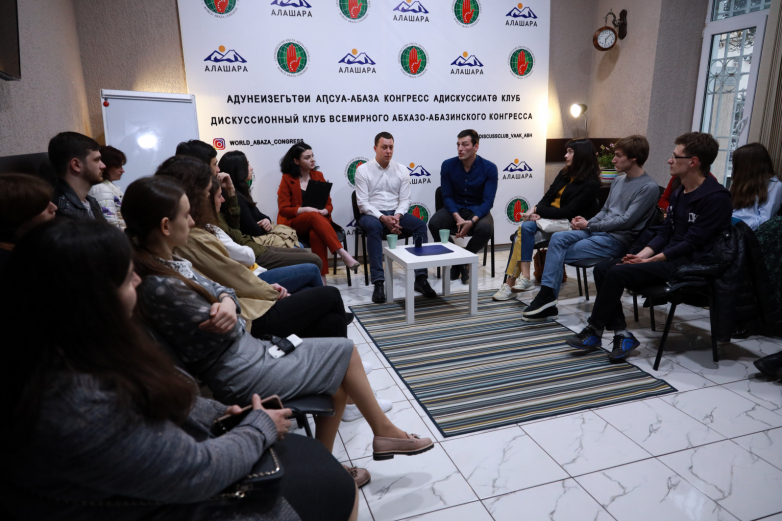
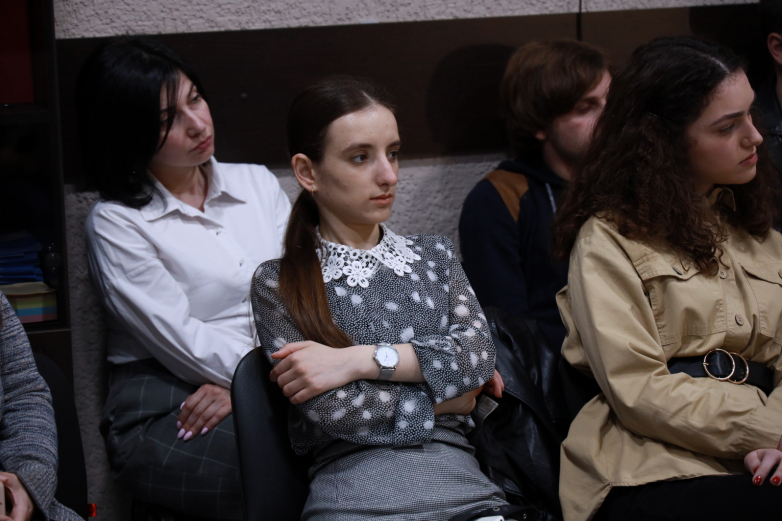
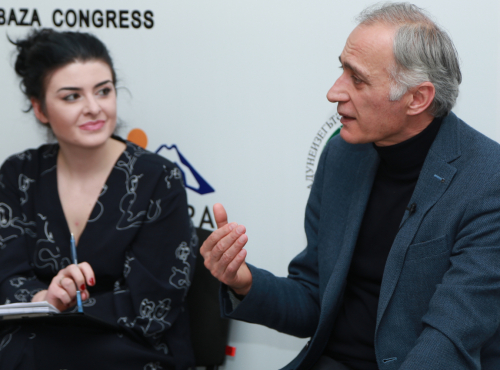
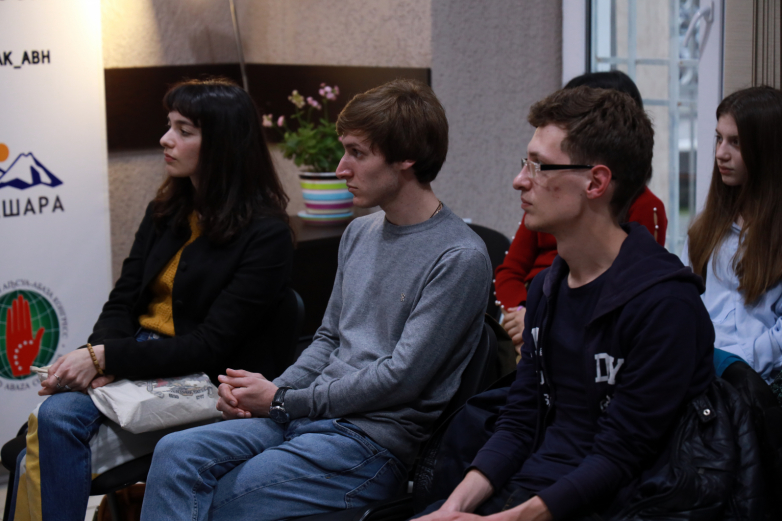

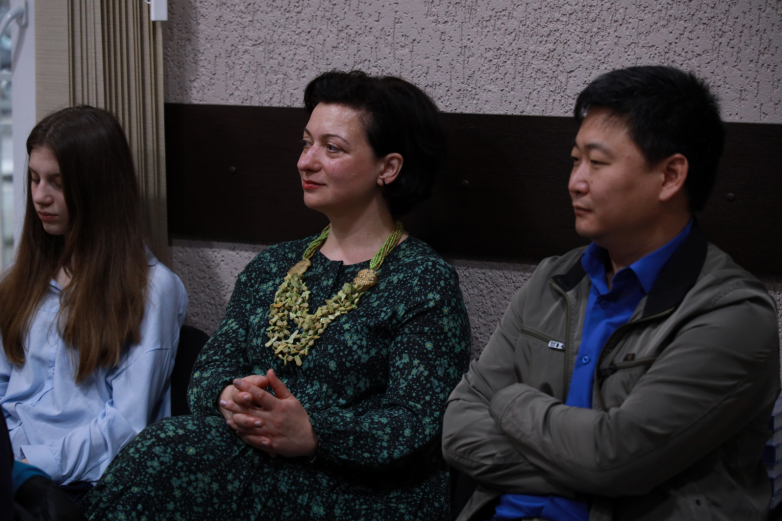
to login or register.